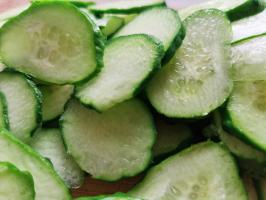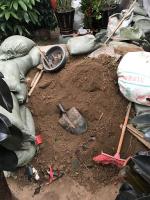Is Tap Water Safe for Weed Plants?
When it comes to growing weed plants, one of the most important factors to consider is the quality of water you use. Tap water is the most accessible and convenient option for most growers. But is it safe for weed plants? In this article, we will explore the potential risks and benefits of using tap water in your cannabis garden.
What Are the Different Types of Tap Water?
Before we dive into the safety of tap water for weed plants, it is important to understand the different types of tap water available. There are three main types of tap water:
Municipal tap water: This type of tap water is supplied by the local government and often contains chlorine, fluorine, and other chemicals added for public health purposes.
Well water: This type of tap water comes from a well dug into an underground aquifer and may have various minerals and contaminants depending on the location and depth of the well.
Filtered tap water: This type of tap water is treated with a filtration system to remove impurities and improve taste.
What Are the Risks of Using Tap Water for Weed Plants?
The main risks of using tap water for weed plants are the chemicals often added to municipal tap water. Chlorine and fluorine, in particular, can be harmful to cannabis plants. Chlorine can damage the plant's roots, and fluorine can cause leaf tip burn and inhibit growth. Additionally, tap water may contain other contaminants that are not safe for consumption by humans or plants.
What Are the Benefits of Using Tap Water for Weed Plants?
Despite the potential risks, tap water also has some benefits for weed plants. It is easily accessible and cost-effective, making it a practical choice for many growers. Additionally, tap water often contains essential nutrients like calcium and magnesium that can benefit plant growth.
How Can You Make Tap Water Safe for Weed Plants?
If you decide to use tap water for your weed plants, there are a few things you can do to make it safe. The first step is to remove the chlorine and/or fluorine from the water. This can be done by letting the water sit in an open container for 24-48 hours, which allows the chemicals to evaporate. Another option is to use a dechlorinator or activated carbon filter, which removes the chemicals from the water.
You can also test your tap water for contaminants and adjust the pH levels as needed. If your tap water has high levels of minerals like calcium and magnesium, you may not need to add additional nutrients to your plants. However, if your tap water is lacking in these nutrients, you may need to supplement with fertilizers or nutrients to ensure proper growth and development.
Conclusion
Tap water is a convenient and accessible option for growing weed plants. However, it is important to consider the potential risks and take steps to make it safe for your plants. By removing harmful chemicals and testing for contaminants, you can ensure that your weed plants receive the best quality water possible.

 how many times do yo...
how many times do yo... how many planted tre...
how many planted tre... how many pine trees ...
how many pine trees ... how many pecan trees...
how many pecan trees... how many plants comp...
how many plants comp... how many plants can ...
how many plants can ... how many plants and ...
how many plants and ... how many pepper plan...
how many pepper plan...






























